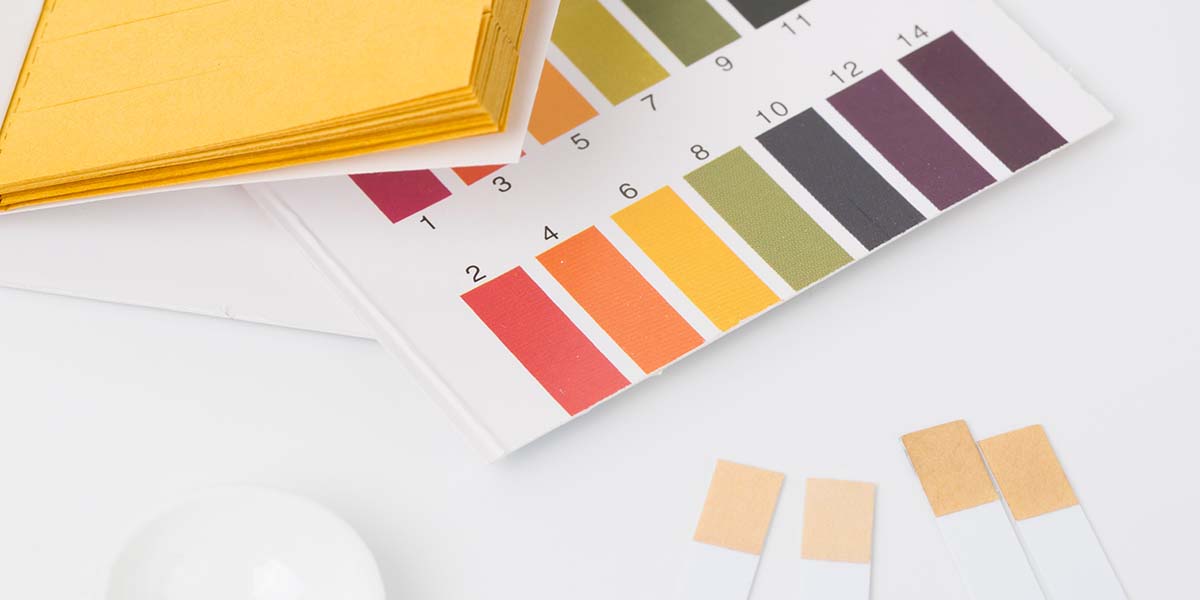Let's get straight to the point, perfect skin doesn't really exist. We all have texture, pores, fine lines, experience hormonal breakouts etc, however, there is something we can all be doing to ensure our skin is looking and feeling it's best:
Looking after or skins pH balance.
More and more people are becoming skin aware and realising that you don't need a 25-step skincare routine to achieve your best skin. A simple yet effective routine is all you need. One that's gentle on your skin and doesn't cause you any unnecessary striping of your natural oils and upsetting your skins pH.
Yes, it's all about nurturing your skins pH and protecting your skins barrier and skins microbiome.
If you experience dry, itchy, red or irritated skin, or if you often have breakouts and your skin just looks dull, then you may need to focus on using products that will restore your skins pH level.
You may have heard of skin pH but still be wondering what it is and its importance. We thought we would break down some of the important points to know about your skin pH balance and how it may be the underlying cause of your skin concerns. Also how best to restore the pH balance of your skin if it becomes compromised.

What is the Skin pH?
pH stands for "potential Hydrogen" and it is a measure of how acidic or alkaline a substance is. The pH scale ranges from 1 to 14. The lower numbers are acidic, while the upper levels are considered alkaline, or non-acidic. The ideal pH balance for your skin is 4.5 - 5.8 which is when your skin is functioning at its best. The pH of our skin can also change during puberty, pregnancy or menopause.
Skin with a balanced pH appears healthier, hydrated, looks plumper, and has a healthy glow.

What Happens When Your Skin PH Balance is Off?
When your skin pH is out of balance this causes your skin barrier to be compromised. By maintaining the correct pH balance, you may help to minimise skin problems such as perioral dermatitis, eczema, psoriasis, acne, dry or oily skin, and other common skin problems. When skin pH gets out of balance, your body’s ability to resist an overgrowth of bad bacteria and germs lessens.
External factors that can affect your skins pH include chemicals, dirt, pollution, over washing, cosmetics, change in temperature, and some medications.
Genetics and hormones are internal factors that may also affect your skin pH.
One of the ways to help restore the pH balance of your skin is to ensure you have the right tailored skincare regime to suit your skins needs.
How to Restore your Skins pH Balance
The following tips can help you to restore the pH balance of your skin
- Don't use a harsh cleanser. Some cleansers can contain ingredients that strip your skins natural oils. By using a gentle cleanser you can help to ensure that your skin pH level stays where it should be.
- Use a probiotic skin care. Probiotics can help to strengthen the skin barrier by balancing your skins microbiome.
- Check your tap waters pH level. Hard water can affect your skin's pH level as its pH level is over 8.5. If you think that your tap water might be affecting your skin then you can invest in a water softener or shower filter to help.
- Use less products on your skin. By using too many products on your skin you could be inadvertently damaging your skin barrier. Practising skinimalism can be a good way to ensure you're only using the essential products you need.

What Causes a Compromised Skin Barrier and How do you Fix it?
Your skin is made up of many different layers that all serve an important function in protecting your body. Experiencing skin concerns such as redness, flakiness, tightness, itchiness, increased breakouts and rashes can all be signs of a compromised barrier. The number one cause of skin barrier damage is over-exfoliation and the incorrect use of skincare.
You can help repair your skin's barrier by simplifying your skin care regime and using products with a suitable pH. The AMPERNA® formulas are simple and straightforward, containing only the necessary ingredients with skin-changing actives. AMPERNA® products were formulated with the skin pH in mind. Using skincare products with the wrong pH can over-strip natural oils which temporarily disrupt the lipid barrier of the skin.

If your skin barrier has been compromised, we suggest washing your face with water only and using our Soothing Duo.
With consistent care and with the use of the right products, your skin barrier should restore itself within two to four weeks. However, the more compromised your skin barrier is, the longer it can take to help restore it.
Is There a Link Between Diet and Your Skin pH Balance?
Research shows that your internal pH is higher than your skins pH. There has been no evidence to suggest a direct correlation between what you eat and your skin pH level, however diet could be a cause of skin allergies or hormone disruption. What you eat affects everything in your body. Eating a well-balanced diet is likely to improve your skin problems. We suggest following an anti-inflammatory diet, which has been linked to improving skin health.
Taking care of your skin with the right products for your skin type will ensure you have the right balance of oil that your skin need to stay healthy. For a personalised skincare regime you can contact our founder Kiri, or sign up for skin coaching.
Sources:
https://www.everydayhealth.com/skin-beauty/skin-ph-yours-healthy-why-it-matters-how-tell/


















